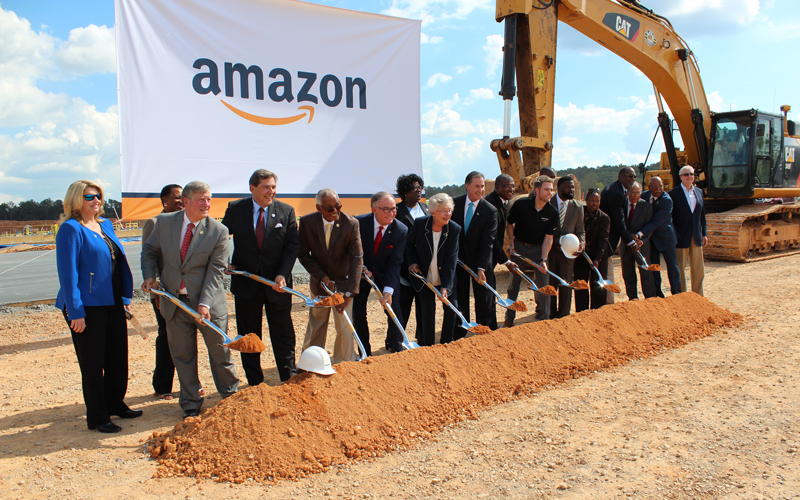At a time when wages have gone down considerably and union membership is historically low, an Amazon warehouse in Bessemer, Alabama, is rightfully looking to challenge the ever increasing power of ultra-high-net-worth individual, Jeff Bezos — and they need our full support.
Unions benefit workers by offering a say in where they spend roughly 40 hours of their week. This is especially important, considering the increase in wealth Amazon CEO Jeff Bezos saw during the COVID-19 outbreak, along with the power that comes with this wealth.
Amazon is notorious for the extreme lengths they’ll go to sabotage efforts toward unionization: from propaganda to firing union organizers for poorly crafted, phony reasons. America’s first unionized Amazon workplace is not only crucial for setting an example for the 800,000 potential union members, but for how unionization looks like under late capitalism.
Union membership would not simply benefit the members in Bessemer, but instead benefit everyone at large. As a right-to-work state, where law prohibits employees from compulsory union membership, unions do not get to see their full potential. In right-to-work states, wages are 3.1% lower than in non-right-to-work states, according to a study by the Economic Policy Institute.
With widespread membership, employers are forced to offer competing benefits with unions such as higher wages, better benefits and work force standards that become common throughout their respective line of work. This cumulative impact is what historically resulted in the first minimum wage and robust legal protections, as unions worked to put pressure on the political elite to represent their interests.
In addition, states like Alabama deserve to be at the forefront of this movement. As a once agriculturally based economy dependent on free labor from enslaved Africans and later sharecropping, along with attempts at an industrialized economy, Alabama is suffering today.
Deindustrialization hurt any attempts at escaping this dependency on agriculture, and recovering is practically still underway. Alabama performs poorly by most metrics with a high percentage of people living in poverty and a median household income lower than the national. Alabama is one of many states that face a version of poverty that suburban northeastern college students might never see.
Bernie Sanders, I-VT., who aided in the fight for Amazon’s $15 an hour wage, tweeted saying he stands with them, highlighting the outlying conditions the workers of Alabama face such as anti-union laws and an anti-union corporation they are up against.
Almost exactly a year ago, the Rowan club then known as Rowan for Bernie (now Rowan Progressives) canvassed in a rural town called Bennettsville, South Carolina, where they caught a glimpse of what generations of extreme poverty looked like. To some such as myself, it almost seemed like we were an outside force intruding on their quiet Sunday afternoon. In fact, many expressed disapproval with the political process; we shared this sentiment with them.
However, many were receptive to the campaign’s message of solidarity and a recognition of seemingly forgotten people from remote corners of this nation’s landscape. Bernie’s unbroken legacy serves as an example for what relentless political pressure can do. While Bernie is just one individual from the U.S. Senate, with the combined impact of hundreds upon thousands of ordinary Americans, this impact is amplified greatly. And this potential has not been fully tapped into yet.
If the legacy of Bernie Sanders inspires you, and if you are looking to contribute to this mass movement against corporate power, consider joining Rowan Progressives this Friday at 7 p.m., where we’ll be discussing his legacy and what we can learn from it. Message @rowanprogs on Instagram to get on our email list and join our Discord.
For comments and questions, tweet @TheWhitOnline.























































































































































!["Working with [Dr. Lynch] is always a learning experience for me. She is a treasure,” said Thomas. - Staff Writer / Kacie Scibilia](https://thewhitonline.com/wp-content/uploads/2025/04/choir-1-1200x694.jpg)








































